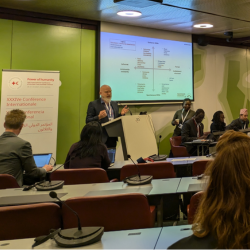-
Study
-
Quick Links
- Course Search
- Unlock Your Potential
- Still time to Apply
- Higher and Degree Apprenticeships
- Continuing Professional Development
- Book an Open Day
-
Undergraduate
- Course Search
- Application Guides
- UCAS Exhibitions
- Foundation Years
- Fees and Funding
- School & College Outreach
- Information for Parents
-
Postgraduate
- Course Search
- Application Guide
- Postgraduate Research Degrees
- Flexible Learning
- Fees and Funding
- Change Direction
- Register your Interest
-
Student Life
- Students' Union
- The Hub - Student Blog
- Accommodation
- Northumbria Sport
- Support for Students
-
Experience Northumbria
- Open Days & Events
- Virtual Tours
- Campus Tours
- Life in Newcastle
-
-
International
International
Northumbria’s global footprint touches every continent across the world, through our global partnerships across 17 institutions in 10 countries, to our 277,000 strong alumni community and 150 recruitment partners – we prepare our students for the challenges of tomorrow. Discover more about how to join Northumbria’s global family or our partnerships.
View our Global Footprint-
Quick Links
- Course Search
- Undergraduate Study
- Postgraduate Study
- Information for Parents
- London Campus
- Northumbria Pathway
- Sign up for Information
-
International Students
- Information for Students
- International Events
- Application Guide
- Entry Requirements and Education Country Agents
- Global Offices
- English Requirements
- English Language Centre
- International student support
-
International Fees and Funding
- International Undergraduate Fees
- International Undergraduate Funding
- International Masters Fees
- International Masters Funding
- International Postgraduate Research Fees
- International Postgraduate Research Funding
-
International Partners
- Agent and Representative Network
- Global Partnerships
- Global Community
-
International Mobility
- Information for Northumbria Students
- Information for Incoming Exchange Students
-
-
Business
Business
The world is changing faster than ever before. The future is there to be won by organisations who find ways to turn today's possibilities into tomorrows competitive edge. In a connected world, collaboration can be the key to success.
More on our Business Services -
Research
Research
Northumbria is a research-rich, business-focused, professional university with a global reputation for academic quality. We conduct ground-breaking research that is responsive to the science & technology, health & well being, economic and social and arts & cultural needs for the communities
Discover more about our Research -
About Us
-
About Northumbria
- Our Strategy
- Our Staff
- Place and Partnerships
- Leadership & Governance
- Academic Departments
- University Services
- History of Northumbria
- Contact us
- Online Shop
-
-
Alumni
Alumni
Northumbria University is renowned for the calibre of its business-ready graduates. Our alumni network has over 246,000 graduates based in 178 countries worldwide in a range of sectors, our alumni are making a real impact on the world.
Our Alumni - Work For Us
What will I learn on this module?
The module will help you engage with the management challenges involved in managing individuals, teams and organisations. You will gain an understanding of theories and models within the field of organisational behaviour, and the ways in which this knowledge has been applied in terms of techniques and approaches such as human resource management. The module will enable you to apply the concepts introduced to make sense of your own experiences in organizations, to recognise the importance of these aspects of management in an overall understanding of management, and enable you to apply them to your own management practice.
How will I learn on this module?
The module will be delivered through a combination of online resources (including Discussion Board, webcasts, guidance notes), directed learning, independent learning, taught sessions and a residential using a variety of methods (debates, case studies, structured reflection) and case based assessment. Taught sessions will focus on a specific aspect of managing people and organisations (e.g. motivation, teams, organisational culture). Selected pre-readings are required before each taught session as the intellectual resources they provide will be useful as you consider and develop responses to the challenges that we will consider. The taught sessions will be facilitated by a team of academic specialists in the relevant area who will provide ongoing formative feedback. The summative assessment involves examination of a people management issue of strategic significance, which can be tackled either prospectively or retrospectively (that is, analysing how the issue could be addressed and making evidence-based recommendations for action, or evaluating how the issue was addressed, and identifying key points of learning).
How will I be supported academically on this module?
You will be supported primarily by the module tutor, who will be available for guidance and consultation about the module and its requirements. A teaching and learning plan and module Blackboard site will also be used extensively to support learning, set out the schedule of work and provide materials. Less formally, all members of the teaching team will provide support and assistance in the taught sessions. There will be ample opportunity for discussion and provision of formative feedback in the class contact time.
What will I be expected to read on this module?
All modules at Northumbria include a range of reading materials that students are expected to engage with. Online reading lists (provided after enrolment) give you access to your reading material for your modules. The Library works in partnership with your module tutors to ensure you have access to the material that you need.
What will I be expected to achieve?
Knowledge & Understanding:
On completion of the module you will be able to:
1. Demonstrate a critical understanding of the theory and research which underpins the approaches to the management of people which are available to managers and organisations
2. Demonstrate a critical understanding of the implications of effective people management for the achievement of strategic goals.
Intellectual / Professional skills & abilities:
On completion of the module you will be able to:
3. Demonstrate the ability to apply key concepts and ideas to the analysis of people management issues;
4. Demonstrate the ability to interpret outputs from data analysis and to use these to gain insights into potential courses of action.
Personal Values Attributes (Global / Cultural awareness, Ethics, Curiosity) (PVA):
On completion of the module you will be able to:
5. Critically appraise global cases exploring issues such as cross-cultural management; exploration of ethical issues relating to the management of people
How will I be assessed?
Formative assessment: Ongoing formative feedback will be provided in the taught sessions by the module teaching team.
Summative assessment: A single 3000 words individual assignment focusing on a people management issue of strategic importance. This single assignment will assess all module learning outcomes.
Pre-requisite(s)
N/A
Co-requisite(s)
N/A
Module abstract
Effective management of people is vital for the achievement of an organisation’s strategic goals, yet it is hard to do well and easy to do badly. This module focuses on developing your understanding of key theories and approaches within organisational behaviour to enable you to develop your capacity to manage more effectively. Through experiential learning you will be equipped to evaluate your own approach to people management, develop your ability to analyse management problems and develop potential solutions.
Course info
Credits 10
Level of Study Postgraduate
Mode of Study 15 months
Location Singapore
City Singapore
Start September, December, March or June
All information is accurate at the time of sharing.
Full time Courses are primarily delivered via on-campus face to face learning but could include elements of online learning. Most courses run as planned and as promoted on our website and via our marketing materials, but if there are any substantial changes (as determined by the Competition and Markets Authority) to a course or there is the potential that course may be withdrawn, we will notify all affected applicants as soon as possible with advice and guidance regarding their options. It is also important to be aware that optional modules listed on course pages may be subject to change depending on uptake numbers each year.
Contact time is subject to increase or decrease in line with possible restrictions imposed by the government or the University in the interest of maintaining the health and safety and wellbeing of students, staff, and visitors if this is deemed necessary in future.
Useful Links
Find out about our distinctive approach at
www.northumbria.ac.uk/exp
Admissions Terms and Conditions
northumbria.ac.uk/terms
Fees and Funding
northumbria.ac.uk/fees
Admissions Policy
northumbria.ac.uk/adpolicy
Admissions Complaints Policy
northumbria.ac.uk/complaints









